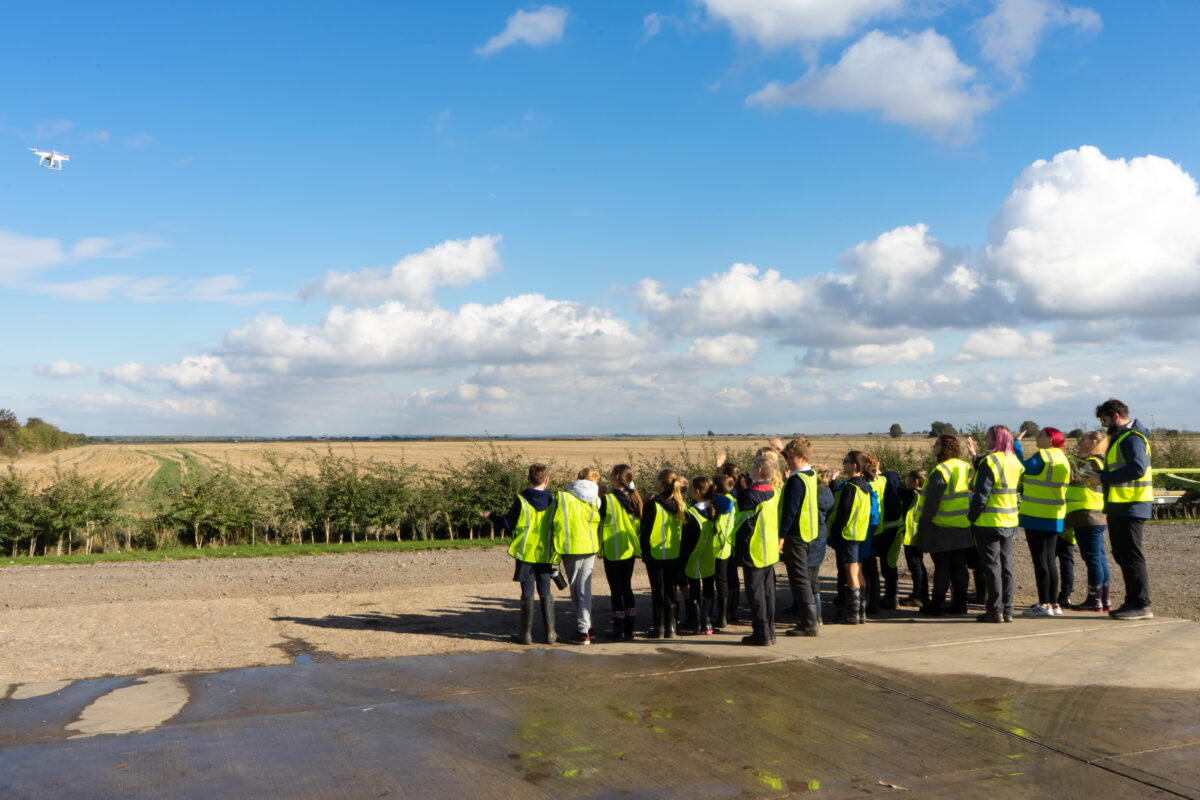Branston Junior Academy visit
As part of our commitment to the local community, we have formed a strong relationship with Branston Junior Academy.
Just five miles from our head office, we gave the children a chance to see behind the scenes of a farm they’ll pass regularly. On Friday, we welcomed the entire school to The Hive before splitting up and exploring different parts of the farm, and farming, throughout the day.
From the importance of British produce to the differences in soils, this was a brilliant opportunity for the next generation, and farmers of the future, to see what goes into 21st century farming and how we care for the environment and surrounding landscape.
During the day, the children met members from teams across the business including Agronomy, Farming and Environment.
Management project
Ian Willoughby gave each class their own plot of land. Each plot is abundant with wildlife and wildflowers. The children set out to explore their plot, recording the wildflowers they found and spotting animal poo and pellets, which gave them a clue to what animals visit or call the area home.
Their task is to create a management plan to encourage more, or different, flora and fauna to flourish within their plot. From creating areas of wetland or hedgerows to doing nothing at all, each plot will be managed by each class, with changes being made over time.
Ask a farmer
Farm Manager, Paul Carrott, and Livestock Manager, Tom Wilks, tested the children’s knowledge on crops and how they’re used, before the tables were turned for a Q&A session.
Farming equipment and soil health
Technical Agronomist, Ed Ford, introduced each group to a range of farming equipment including combines, foragers and tractors. He then explained how drones are used across our farmland to determine soil health, followed by an extremely popular flight demonstration.
Soils
Dr Tom Storr, Research Agronomist, got the children’s hands dirty, determining soil type by feeling different samples. After that, they were given a shovel to dig up roots of crops which they compared and learnt how they affect soil structure.
British produce
Estates and Environment Manager, Jo Knight, asked the children to think about where their food came from. From sugar to strawberries, they discovered the thousands of miles much of their food travels before landing on their plates and how British farms can buck the trend.
Nocton Wood
Some of the children were even treated to a walk around Nocton Wood, a private, protected woodland that sits on our estate. They spoke about the animals who live there and how our team maintain the area to provide the perfect habitat.
You can visit Nocton Wood, this Halloween – join us for ghost stories, spooky walks and creepy surprises. For more information, click here.
The Estate Office,
Cyclone Way, Nocton,
Lincoln LN4 2GR
